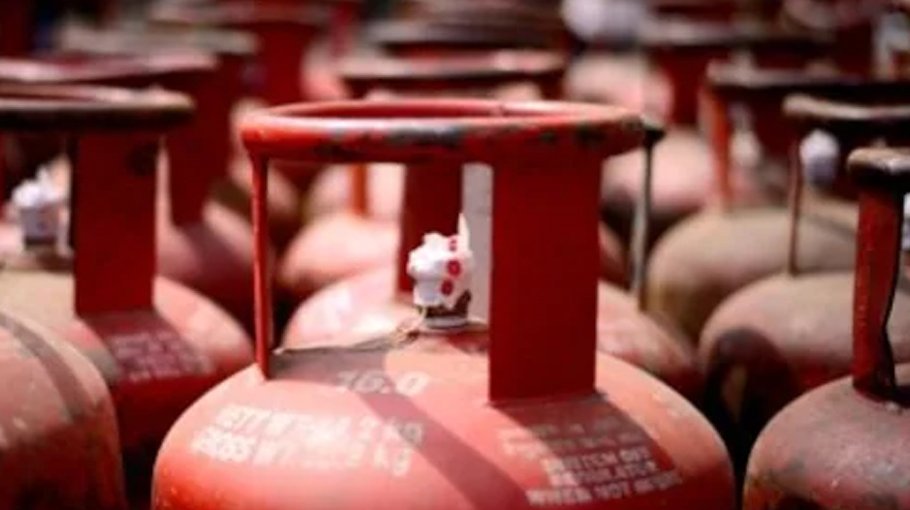End to theft, wastage could avert gas price hike

Another hike in gas price at the consumer level is imminent, with experts saying there would be no need for such a move if corruption, theft and waste in the gas sector were prevented.
Analysts have repeatedly spoken against gas price hike. Instead of enforcing another hike, they say, the government can stem misuse, corruption and bribery in the energy sector. Besides, the government should expedite gas exploration activities onshore and offshore in the country.
Consumers Association of Bangladesh (CAB) said that when people’s daily life is disrupted by rising commodity prices, hiking gas prices will be an anti-people decision. There is an opportunity to reduce the price of gas by taka 0.18 per unit instead of increasing the price.
‘It is possible to get gas for 1 taka per unit domestically. Instead, liquefied natural gas (LNG) will be imported from the spot market at a price of Tk 83.47, and the cab has objected to taking extra money from consumers to address the gas company's deficit.
Petrobangla said that the price of LNG has gone up in the international market. LNG has to be imported from the sport market at high prices. For this, gas distribution companies have proposed a hike of 116 percent in gas price. On the other hand, the BERC technical committee has recommended increasing 20 per cent. The announcement could come any day.
In last July-December, the system loss for gas distribution was 8 percent. Daily system loss is 25.5 crore cubic feet. The standard system loss of gas is considered to be maximum 2 percent considering technical and other aspects.
Md. Abdul Jalil, chairman of the Bangladesh Energy Regulatory Commission, said that the standard system loss of gas is below 2 percent. There is no system loss above 2 percent anywhere in the world. 8.5 percent system loss is not acceptable. This should be brought down to an acceptable level.
About 60 crore cubic feet of gas is being stolen every month at a cost of around Tk 10,000 crore (Considering the LNG imported price). Distribution companies are adding the theft and wasted gas to their systems loss.
Even if the amount of theft could be reduced, the government would not have to import LNG from the spot market at a high price. And, there would be no need to increase the price.
Professor M Shamsul Alam, senior vice-president of CAB, said that making excuses for gas price hike was not in the interest of the service, but in the interest of dishonest business. Although there is a legal obligation to prevent such dishonest business, BERC is inactive. This inactivity is a major obstacle to resolving the gas crisis.
The daily demand for gas in the country is around 420 crore cubic feet, while average production is around 300 crore cubic feet including LNG. Although there is a deficit of 120 crore cubic feet, around 45 crore cubic feet of gas is being wasted or disappearing daily.
Titas Gas Transmission and Distribution Company Limited (TGTDCL) supplies gas to the capital Dhaka and the surrounding areas. In the last financial year, TGTDCL wasted 32.60 crore cubic meters of gas. Bakhrabad in Cumilla area wasted 18 crore 52 lakh cubic meters of gas. Gas Transmission Company Limited (GTCL), has wasted gas of 6 crore 20 lakh cubic meters annually.
Chattogram-based gas Distribution Company Karnafuli wasted 5 crore cubic meters in the last financial year and Sylhet's gas distribution company Jalalabad's waste is 2 crore 65 lakh cubic meters.
The total domestic subscribers of Titas, the largest gas Distribution Company in the country was more than 28 lakh 56 thousand. Of these, only 3.20 lakh consumers have pre-paid meters. The monthly bill of taka 975 has been fixed with the estimate that each consumer will use 77.38 cubic meters of gas per month. However, it has been proved by pre-paid meter users that no customer uses more than 40 cubic meters of gas per month.
CAB says even though unaware, ordinary meterless consumers do not consume more than Tk 500 per month on average. But they have to pay Tk 975, which is almost double.
The scenario is the same for all residential customers of the country's six gas distribution companies. Out of a total of 43 lakh residential customers of six distribution companies, less than 4 lakh consumers have prepaid meters. As a result, 39 lakh consumers are paying an additional Tk 213 crore per month, which is more than Tk 2500 crore every year.
According to Power Development Board (PDB) sources, the fuel efficiency of the gas based old power plant is around 35 percent. But now the energy efficiency of advanced technology gas-fired power plants is 50 to 55 percent. If the technology of the old plant is changed, it will be possible to generate the same amount of electricity using about half of the current energy.
Another major wastage of gas is in captive power plants. In this case, the government is supplying gas at a lower price for the private based captive power plants. But the efficiency of these power plants is around 20 percent in some cases.
Gas wastage is also high in urea fertilizer factories. Karnaphuli Fertilizer Factory is a multinational company established with foreign investment. It requires 24,000 cubic feet of gas to produce per metric tonne of urea. On the other hand, the most efficient of the government factories, Jamuna Fertilizer Factory, produces one tonne of urea using 32,000 cubic feet of gas. Chattogram urea fertilizer factory takes 42,000; Ghorashal's Zia and Palash fertilizer factories require 43,000 and 49,000 cubic feet, respectively. Ashuganj fertilizer factory takes 73 thousand cubic feet of gas.
Geologist Badrul Imam said that there is a possibility of getting gas all over the country along with in the sea. But the exploration activity is not being emphasized. Gradually the gas crisis has been created. Now the price of gas is being increased on the pretext of importing LNG at higher prices.
“There is an opportunity to increase gas production in the short term by digging reform wells. And gas exploration activities should be speeded up onshore and offshore in the long run,” he added.



